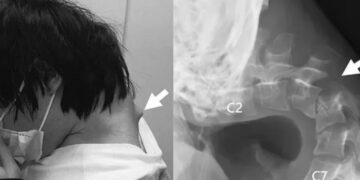Um episódio inacreditável marcou mais um capítulo controverso na história da Air India. Um passageiro indiano, identificado como Tushar Masand, supostamente urinou em Hiroshi Yoshizane, diretor executivo da Bridgestone Índia, durante um voo entre Nova Délhi e Bangcoc. O incidente gerou imediata reação da tripulação, que realocou o acusado e informou o ocorrido à Diretoria-Geral de Aviação Civil (DGCA) da Índia.
Este novo constrangimento aconteceu a bordo do voo AI2336, operado pela Air India, trazendo à tona memórias do infame caso “pee-gate” de 2022, quando outro passageiro embriagado havia cometido um ato semelhante durante um voo internacional. Desta vez, porém, o alvo foi Hiroshi Yoshizane, renomado executivo da multinacional automotiva Bridgestone. O episódio ocorreu enquanto o avião iniciava sua descida para Bangcoc.
Segundo fontes próximas ao caso, Yoshizane estava sentado na poltrona 1D, localizada na classe executiva, quando Masand, que ocupava o assento logo atrás (2D), teria cometido o ato após retornar do banheiro. O incidente causou agitação entre os passageiros e constrangimento generalizado na cabine. Diante da situação, Masand ofereceu desculpas diretas a Yoshizane, que, apesar de visivelmente abalado, optou por não registrar uma queixa formal. Ele afirmou à tripulação que preferia não perder tempo lidando com o caso após o pouso.
Outro passageiro da classe executiva, identificado apenas como Matthew e sentado na poltrona 1F, expressou indignação com o ocorrido. Preocupado com a segurança e o conforto dos demais, ele exigiu que Masand fosse removido da área premium. Em resposta à crescente tensão, a equipe de bordo transferiu Masand para a classe econômica, alocando-o na poltrona 14C, e lhe deu uma advertência verbal.
A conduta da companhia aérea refletiu seus protocolos atualizados de comportamento a bordo, implementados após o polêmico incidente de 2022 envolvendo um passageiro embriagado em um voo de Nova York para Nova Délhi. Na ocasião, o caso gerou revolta nacional e intensificou o debate sobre medidas contra passageiros indisciplinados.
Embora o episódio seja grave, a ausência de uma queixa formal por parte de Yoshizane pode limitar as possibilidades de punição ao acusado. Ainda assim, a DGCA deve conduzir uma investigação detalhada, especialmente considerando o histórico recente da Air India e a necessidade de garantir padrões rigorosos de conduta em seus voos.
O incidente ressalta a importância de manter políticas claras para evitar que situações como essa comprometam ainda mais a reputação da companhia aérea.
An unbelievable episode marked yet another controversial chapter in the history of Air India. An Indian passenger, identified as Tushar Masand, allegedly urinated on Hiroshi Yoshizane, the managing director of Bridgestone India, during a flight from New Delhi to Bangkok. The incident prompted an immediate response from the crew, who relocated the accused and reported the matter to India’s Directorate General of Civil Aviation (DGCA).
This new embarrassment occurred aboard Air India flight AI2336, reviving memories of the infamous 2022 “pee-gate” scandal, when an intoxicated passenger had committed a similar act during an international flight. This time, however, the victim was Hiroshi Yoshizane, a renowned executive of the multinational automotive company Bridgestone. The episode took place as the plane began its descent into Bangkok.
According to sources close to the case, Yoshizane was seated in seat 1D, located in business class, when Masand, who occupied the seat directly behind him (2D), allegedly committed the act after returning from the lavatory. The incident caused commotion among passengers and widespread discomfort in the cabin. In response to the situation, Masand reportedly offered a direct apology to Yoshizane, who, despite being visibly upset, chose not to file a formal complaint. He informed the cabin crew that he did not wish to waste further time dealing with the matter after landing.
Another business-class passenger, identified only as Matthew and seated in 1F, expressed outrage over the incident. Concerned about the safety and comfort of others, he demanded that Masand be removed from the premium section. In response to the rising tension, the cabin crew transferred Masand to economy class, seating him in 14C, and issued him a verbal warning.
The airline’s handling of the situation reflected its updated onboard behavior protocols, implemented following the controversial 2022 incident involving an inebriated passenger on a flight from New York to Delhi. That case had sparked national outrage and intensified discussions about measures to deal with unruly passengers.
Although the episode is serious, the absence of a formal complaint from Yoshizane may limit the scope for punitive action against the accused. Nevertheless, the DGCA is expected to conduct a thorough investigation, especially considering Air India’s recent track record and the need to ensure strict standards of conduct on its flights.
The incident underscores the importance of maintaining clear policies to prevent situations like this from further tarnishing the airline’s reputation.


































Hi, this is a comment.
To get started with moderating, editing, and deleting comments, please visit the Comments screen in the dashboard.
Commenter avatars come from Gravatar.